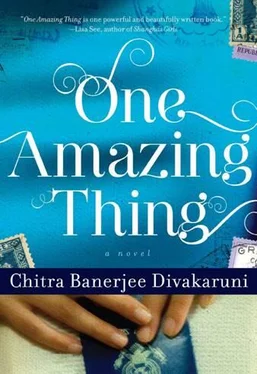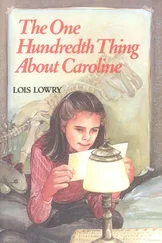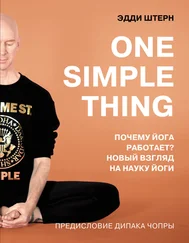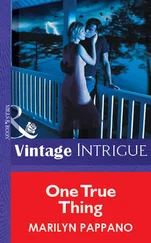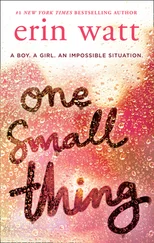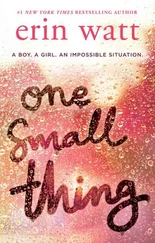THE RULES UMA SET DOWN WERE SIMPLE: NO INTERRUPTIONS, no questions, and no recriminations, especially by family members. Between stories, they would take breaks as needed.
They arranged the chairs into a circle. Malathi came out with a tin of Kool-Aid fruit punch. (Where had she hidden it? What else was she hiding?) She mixed it into the bowls of water sitting on the ounter, placed the bowls on a tray, and served them as though she were the hostess at a party. The sugar made people more cheerful, though Uma guessed it would ultimately make them feel worse. Oh, well! Carpe diem. Cameron switched off both flashlights. But in spite of the claustrophobic dark that fell on them, Uma sensed a new alertness in her companions, a shrugging off of things they couldn’t control. They were ready to listen to one another. No, they were ready to listen to the story, which is sometimes greater than the person who speaks it.
“WHEN I WAS A CHILD,” JIANG BEGAN, “I LIVED INSIDE A SECRET.”
From outside her house, in the narrow alley lined with the smelly gutters typical of Calcutta ’s Chinatown, an observer would have seen the ugly, square front of a building, windowless and muddy red like its neighbors. In the center of this façade was a low, narrow door of cheap wood, painted green. The door opened only a few times each day-for the children, who walked a few blocks to the Chinese Christian school, or for the father, who was picked up for work by the monthly taxi he shared with two other Chinese businessmen. Sometimes in the afternoon the grandmother might undertake a visit by rickshaw to her friends, all of whom lived within a mile of the house. Or a guest would arrive unexpectedly, causing a flurry of xcitement and a dispatching of the cook to the market for bean cakes or fresh lychees. Should the observer have peered into the interior of the house, he would have seen only another brick wall-the spirit wall, built for the express purpose of deflecting the outsider’s gaze.
“But no one ever looked,” Jiang said. “No one gave the Chinese any thought-not until much later. Indians considered us below them because many of us were in the tannery business or owned leathergoods stores. That was okay with us. We had our own people, and we got from them everything we needed.”
Had the observer walked through the door and around the spirit wall though, he would have been astonished. Inside was a large and beautiful courtyard, the heart around which the rest of the house was structured, its windows and balconies looking down benignly on mango trees and roses. At the courtyard’s center, a fountain rose and fell. Parties were held here on full moon nights, with much drinking of wine and reciting of poetry, while children played catch around the sculpted lions.
Jiang and her brother never spoke about the courtyard-or about the other parts of the house. The banquet hall with the carved rosewood table that could seat twenty-four people. Their father’s bedroom, which had a large photograph of their dead mother and was still hung with the silks she had chosen as a bride, embroidered with herons and good-luck koi. His study with the antique calligraphy scrolls he loved to collect. The hidden safe in which, because he didn’t quite trust the banks, he kept gold coins, their mother’s jade and pearl jewelry, stacks of rupees, and important documents (all except one, which he would later realize was the most important). There was no reason to tell the other Chinese of these things. They already knew, and many of the children’s friends’ houses mirrored theirs. And as for the non-Chinese-the ghosts, as they were called-the children were taught from the beginning to stay away from them. To keep family secrets safe.
“I would be the first in our family to break this taboo,” Jiang said.
IT IS AN EARLY SPRING DAY IN 1962 IN CALCUTTA AND JIANG, twenty-five years old, stands in the doorway of her father’s shoe store inside New Market, under the sign that reads feng’s fine footwear. She is proud of the sign, of which she is the author. That sign had led to some heated arguments, her grandmother claiming that such an arrogant declaration would attract bad luck. Look at the other Chinese businesses with their noncommittal nomenclatures: lucky orchid, jade mountain, flying dragon. None of them draw attention to their family name by blazoning it over their storefront. But her father had taken Jiang’s side, the way he had ever since her mother had died when Jiang was five, leading her grandmother to lament that he was nothing but a soggy noodle in his daughter’s hands.
Secretly, Jiang admits that her grandmother is right. And thank God for it, because otherwise Jiang would not be standing inside Feng’s, breathing in the smell of shoe leather, which is her favorite smell in all the world. She would be married off like her classmates, toting babies on her hip. Instead, she manages the family business, in which her older brother Vincent, a dentist with a spacious office off Dharmatala Street, has shown no interest. Though he is too loyal to the family to say such a thing, Jiang suspects that he looks down on shopkeeping.
And that is just fine with Jiang, who loves every aspect of her work. She opens the store each morning so her father, whose gouty leg has been bothering him, can sleep in. She decides which designs to order. She checks the quality of the work sent in by the shoemakers and ruthlessly sends back pieces that do not meet her stringent standards. She visits every convent school in Calcutta and speaks to the appropriate personages so that their students will be directed here to purchase uniform shoes. (The priests and nuns are happy to recommend Feng’s. The quality is excellent, and it doesn’t hurt that Feng’s provides the holy ones with free footwear.) She haggles ruthlessly with the men from the Chinese tanneries in Tangra, squatting over the leather samples they have brought in. She quells, with a single glance (as she is doing now) the two salesgirls who have a tendency to dissolve into giggles at the slightest cause.
The cause, this time, is a young man who is approaching the store. Jiang notes that he is taller than the average Indian and clean-shaven, unlike the usual scruffy Bengali male who operates under the delusion that beards are the emblems of intellectualism. His blue shirt is crisply ironed, but his sleeves are rolled up. This gives him a holidaying look that Jiang finds surprisingly attractive, perhaps because her father and brother, both formal men, would never do something like that. She decides to attend to him herself and dismisses the disappointed salesgirls with a flick of her wrist.
The man is accompanied by a wide-eyed girl of about fourteen, who clearly adores him. Jiang guesses her to be his younger sister. Just as they enter the store, he bends and whispers something funny in her ear-or is it that the girl finds everything he says funny? She bursts into laughter, then claps a self-conscious palm over her mouth. The man pulls it away. “Stop that, Meena!” he says. “It’s okay to laugh!”
Jiang is struck by his words. Has anyone in her family ever encouraged her to abandon herself to laughter? Even her father, who loves her dearly, is a cautious man. Letting her work in the store is probably the riskiest act he has undertaken in his life. And this is a temporary recklessness, because sooner or later Jiang’s grandmother will wear him down into setting up a match for Jiang. As for her brother-Jiang pictures him in his starched white shirt and face mask (to keep out germs and the ubiquitous fishy odor that he insists pervades Bengali mouths) as he bends gingerly toward a patient. A sigh escapes her and she feels a twinge of jealousy toward the girl. Then the businesswoman in her takes over. A caring brother such as this man, she thinks, would buy high-quality shoes for his sister rather than look for a bargain.
Читать дальше
